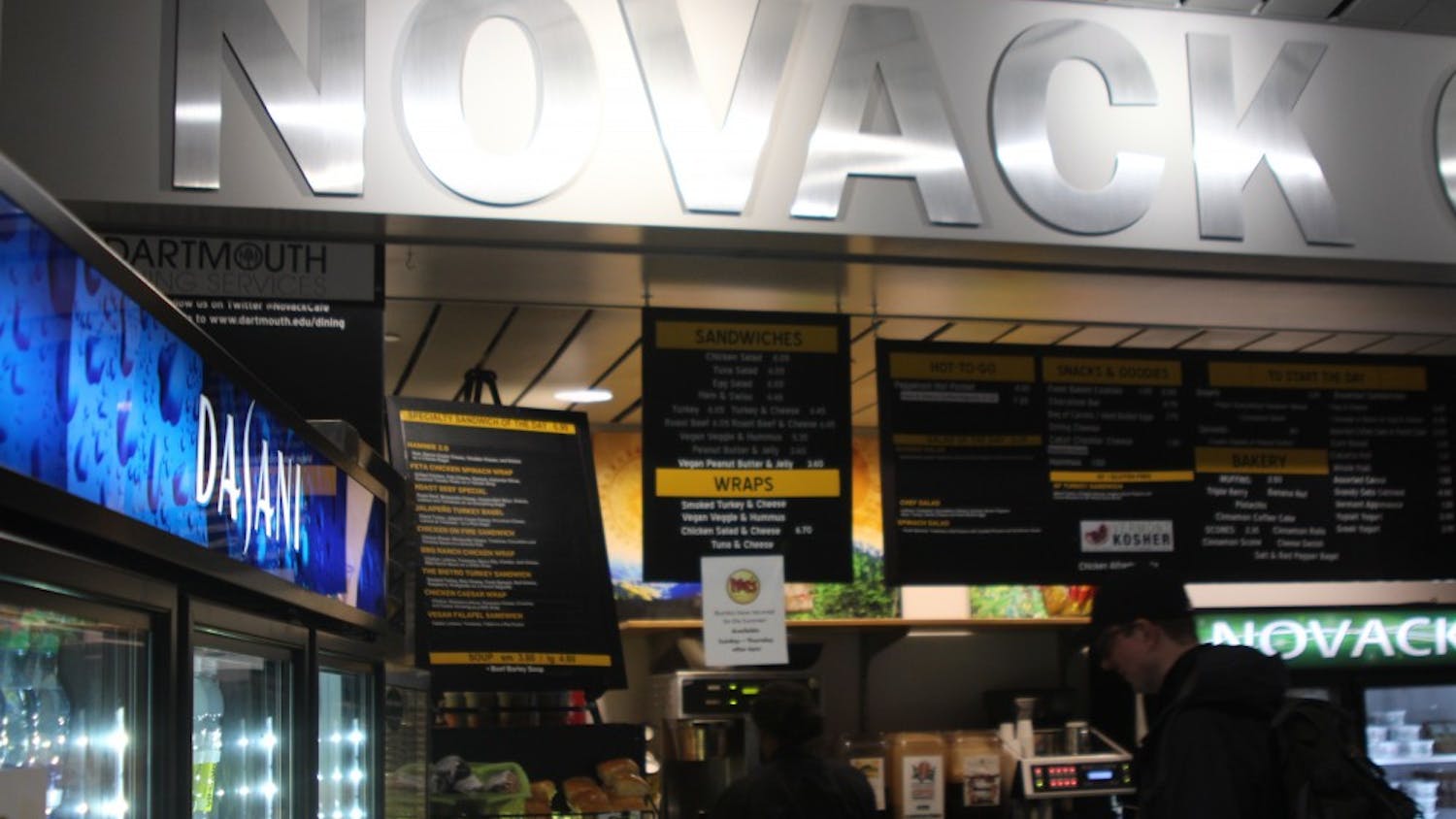The first time I stepped into the Tower Room, I audibly gasped. It was during a late-night tour of Dartmouth, part of the Dimensions program, and I attracted some strange looks from my fellow tour-goers. But I couldn’t help myself. The hardwood floors and tables, the shelves full of dusty old books, the cozy nooks and alcoves, the vaulted ceilings, the warm glow of the lamps and the chandeliers — all of these things flooded into my vision, enamoring me and exciting me and overwhelming me. It was the kind of storied, iconic library that I’d only ever dreamed about, a real-life Hogwarts conjured up before my eyes. I couldn’t believe that this was a real place that mere mortals could casually enter.
“You mean this place is just ... open?” I remember asking my tour guide. “You’re telling me that anyone can just ... come in here, whenever?”
Four years later, I’ve spent less time in the Tower Room than I expected I would — I’m partial to Sanborn Library these days — but I still find myself marveling at just how beautiful Dartmouth really is. Some parts are obvious: Baker Tower rising above the Green, the green-shuttered rows of residence halls across campus, the near-phosphorescent glow of the fall foliage. Other things are smaller, but no less wonderful: the cast-metal door knobs in Robinson Hall, the carved wooden chairs that fill so many classrooms, the black-and-white tiles that greet visitors to Baker Lobby.
I marvel at the people, as well, because it’s remarkable how amazing so many of them are. Before coming here, I never knew just how many varieties of intelligence there are in the world. It’s awe-inspiring to be surrounded every day by hundreds of people who are more brilliant and accomplished than I can ever dream of being.
But what’s just as remarkable as this place, as these people, is how easy it is for me to become desensitized to these wonders. When you’ve got three papers to write and a week to write them and you’ve been averaging three hours of sleep per night, it’s easy to dismiss the campus and the people as just so much background scenery.
I feel some guilt at this dismissal, especially in light of my own background. My high school was not a classically beautiful place, at least not in the way that Dartmouth is. I attended a dual-enrollment program located at my local community college, meaning that I took college classes in the morning and high school classes in the afternoon. There were some genuinely gorgeous places there, most notably the koi pond in the center of campus, but there was also a lot of worn stucco and dusty stairs and dirty paint — and they existed without the luster and charm that long-reaching historical memory provides.
More importantly, my high school was a completely different environment than Dartmouth. Stockton, the city where I went to school, was named in 2011 by Forbes Magazine as the “Most Miserable City in America.” Many of my classmates in my college courses were not successful young people already planning to run the world. While there were many traditional 18- to 22-year-old college students, there were also single mothers, 40-somethings returning to school for the first time in decades, high-school dropouts trying to start over with a new beginning.
So while I had more than my fair share of privilege coming into Dartmouth, the casual wealth and prestige of this campus are still staggering to me. At times, they are actively infuriating. I’m astonished at the number of casually dismissive comments I’ve heard here about state schools, or the number of students who seem to believe their test scores and grades entitle them to six-figure jobs and parties every weekend fresh out of college. The social dynamics on campus, the casual classifications of everything from Greek houses to dining locations as “A-side” or “B-side,” are just as toxic. Don’t get me wrong — there are countless students here who have gone through more in life than I ever will, and countless more who are genuinely humble and grateful for all that they’ve been given. But it’s undeniable that the Dartmouth bubble is real, and even though students profess to be self-aware about it, all too often we aren’t.
The most infuriating part, though, is when I notice myself sinking into these same patterns of myopia — and then, in turn, find myself overcompensating. How silly it is to be concerned about Greek rush or senior society taps or tails invites, I tell myself. How silly it is to compete about employers and jobs and the prestige of post-graduation plans. How silly it is to get worked up about Dartmouth when there’s a whole world out there that neither knows nor cares about these collegiate diversions — a world that I will soon be re-entering.
But while these statements are largely true, they can also create a dangerous sense of cynicism — a temptation to write off the entire institution as flawed, to declare that Dartmouth is just a bastion of privilege that one needs to rise above.
And so whenever I’m tempted to become too negative about Dartmouth and its privilege, I remember that first night in the Tower Room, and the sense of wonder it inspired.
I’ve been thinking a lot over the past few days about how I feel to finally be graduating. Part of me can’t wait to be gone from campus, and part of me can’t stand to be leaving. But as I think about the memories I want to have of this place, I think I’ve reached two conclusions.
The first is that I never want to become so enamored with the idea of Dartmouth that I ignore its flaws. If I ever allow myself to become so in love with this place that I forget where I came from, or the vast variety of experiences that exist outside the Dartmouth bubble, then I’ll have failed not only myself, but everything that a liberal arts education is supposed to stand for.
But the second is to never allow myself to take Dartmouth and its wonders for granted. Privilege shouldn’t be blinding, but nor should I blind myself to what a remarkable and wonderful place the College on the Hill is. When you’re in the ivory tower, it’s important to remember to look outside — but it’s also important to cherish every moment that you’re allowed to spend inside.
I’ve spent four years in the Dartmouth bubble. And as flawed as they were, I wouldn’t trade them for the world.
Zachary Benjamin ’19 is the former editor-in-chief of The Dartmouth.



